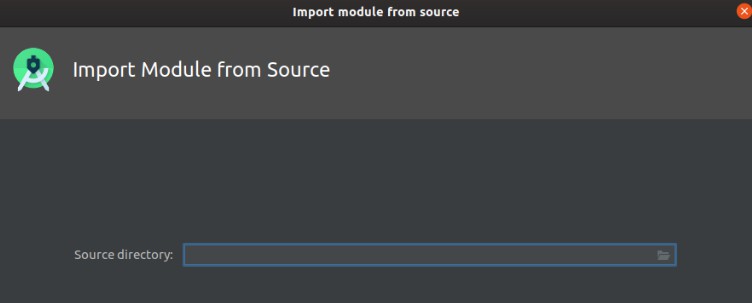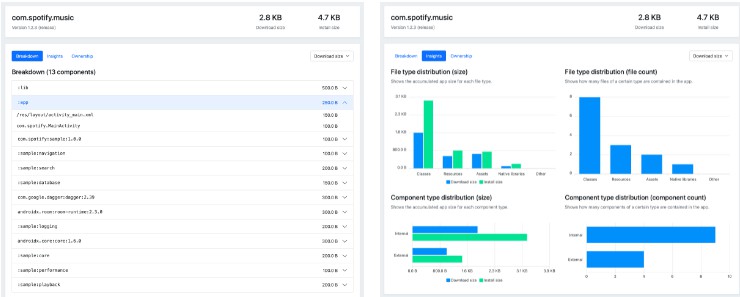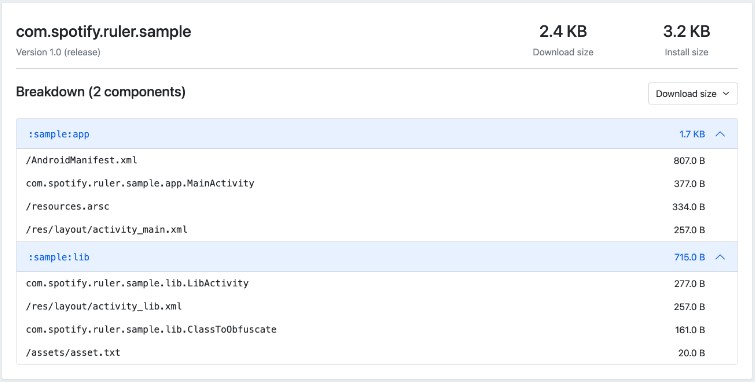android-gradle-template
The simple gradle plugin implementation for Android multi modules application.
How to use
Just click
on 
Features
- 100% Kotlin-only template.
- Plugin build setup with composite build.
- Dependency versions managed via Gradle Versions Catalog (
libs.versions.toml). - Support Hilt, Android Application plugin for configuration
Android Configuration
- Currently, this template support Application and Library module configuration. Android default configuration gotten
from
rootProject/gradle/config/app.properties. Modify it for your application requirement:
# Application Properties
applicationId=com.example.android.gradle.template
versionCode=1
versionName=1.0
supportVectorDrawableLibrary=true
# Default Configuration
minSdk=21
targetSdk=32
compileSdk=32
testInstrumentationRunner=androidx.test.runner.AndroidJUnitRunner
- With
applicationmodule we useapp-pluginand withlibrarymodules, we useandroid-lib-plugin
// app/build.gradle.kts
plugins {
// other plugins
id("app-plugin")
}
// ui:ui-module/build.gradle.kts
plugins {
// other plugins
id("android-lib-plugin")
}
- If we need Jetpack compose support, just add below extension config to your build script:
uiConfiguration { // add this extension configuration
applyCompose() // call this function to apply jetpack compose
}
Hilt configuration
Please follow these steps to use hilt-plugin
- This template use
version catalog. So we need to make sure hilt dependencies exist:
[versions]
...
hilt = "2.43.2" # Update this version to change hilt version
...
[plugins]
...
hilt-android-gradle = { id = "com.google.dagger:hilt-android-gradle-plugin", version.ref = "hilt" }
hilt-android = { id = "com.google.dagger.hilt.android", version.ref = "hilt" }
...
# Hilt
[libraries]
###
hiltLibs-compiler = { group = "com.google.dagger", name = "hilt-compiler", version.ref = "hilt" }
hiltLibs-android = { group = "com.google.dagger", name = "hilt-android", version.ref = "hilt" }
hiltLibs-android-compiler = { group = "com.google.dagger", name = "hilt-android-compiler", version.ref = "hilt" }
hiltLibs-navigation-compose = { group = "androidx.hilt", name = "hilt-navigation-compose", version.ref = "hiltNavigationCompose" }
- We also need to add hilt
classpathto project level build script (refer to https://dagger.dev/hilt/gradle-setup)
// rootProject/build.gradle.kts
buildscript {
dependencies {
if (libs.plugins.hilt.android.gradle.isPresent) {
val hiltPlugin = libs.plugins.hilt.android.gradle.get() // Get Hilt Gradle Plugin from version catalog
val hiltClasspath = "${hiltPlugin.pluginId}:${hiltPlugin.version}" // create classpath dependency name
classpath(hiltClasspath)
}
}
}
- Now we can use
hilt-pluginin any project modules:
plugins {
// other plugins
id("hilt-plugin")
}
- Currently, this template also support to add Hilt Navigation Compose . To apply it, just add to your module buildScript:
hiltConfiguration {
navigation { applied.set(true) }
}
Caution
With custom android plugins, if we use @HiltAndroidApp follow Hilt Gradle Setup for your Application class. IDE can’t detect your multidex enable or not. So it will show unresolved MultiDexApplication. We also need to add multidex dependencies follow (https://developer.android.com/studio/build/multidex)
// app/build.gradle.kts
dependencies {
// other dependencies
implementation("androidx.multidex:multidex:2.0.1")
}


